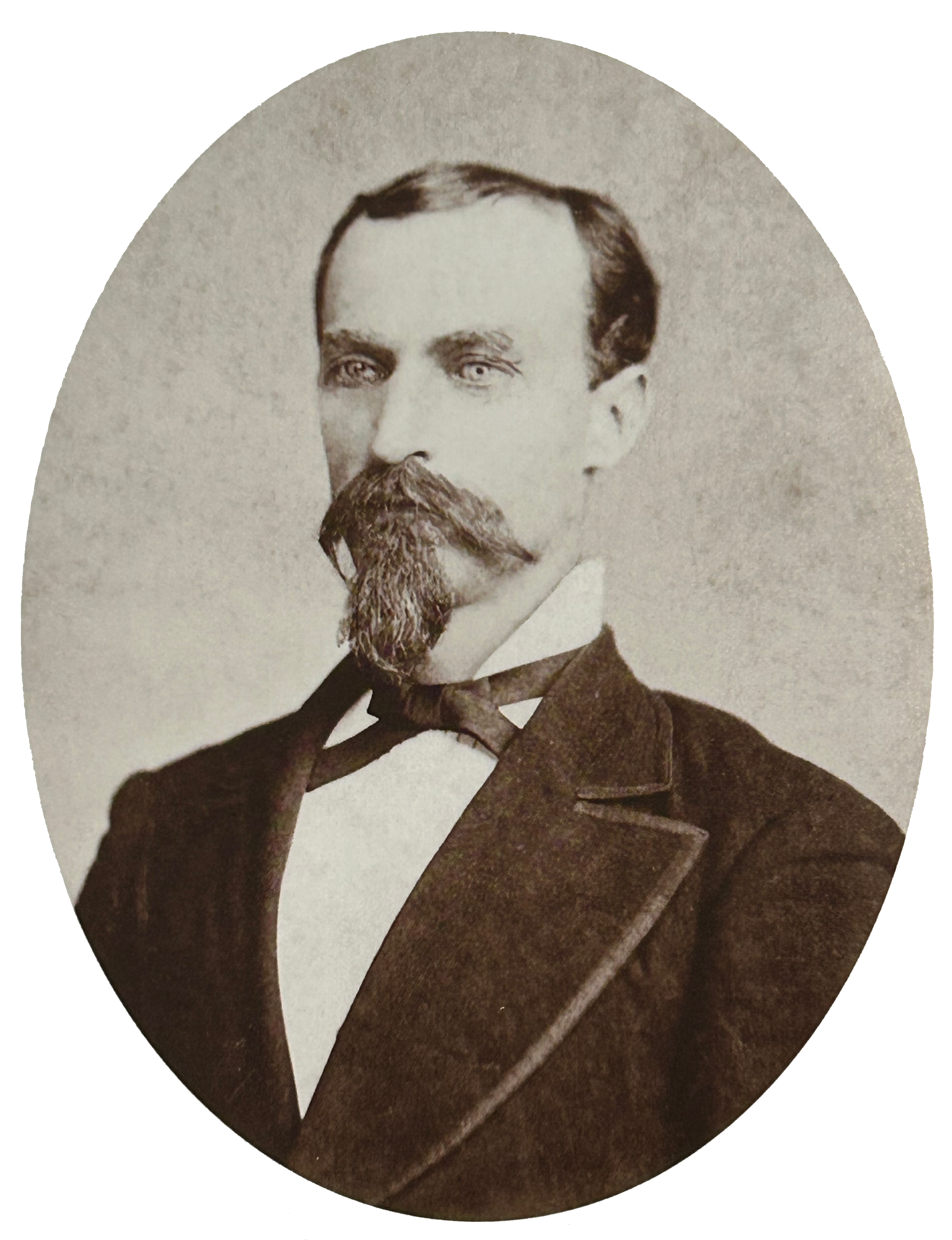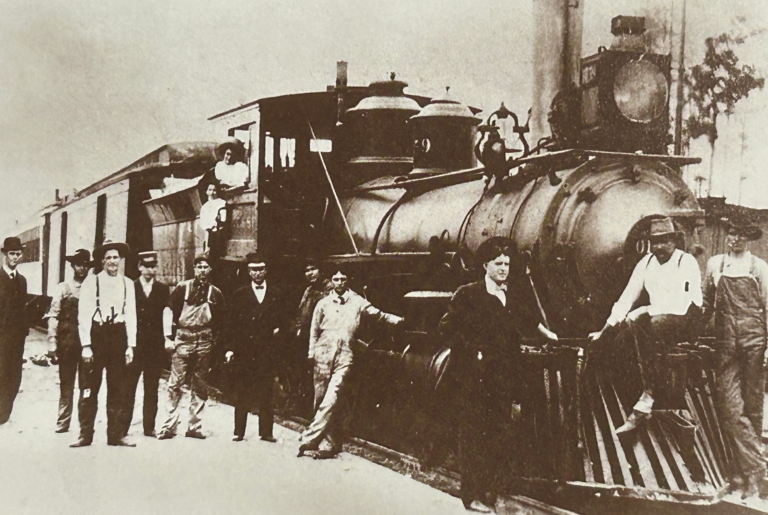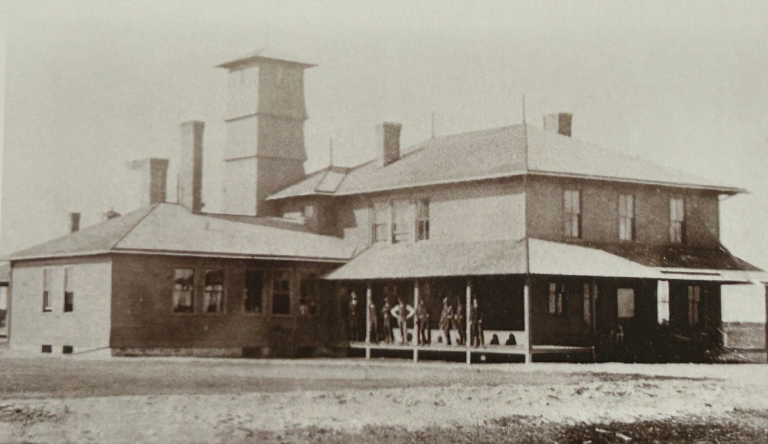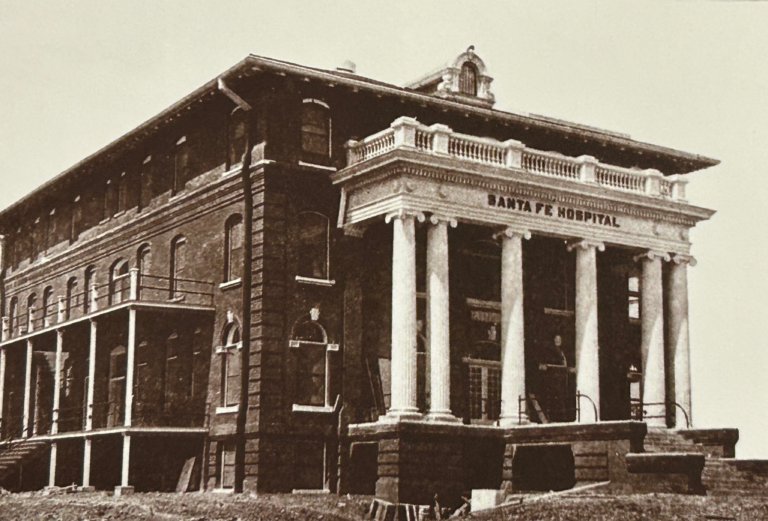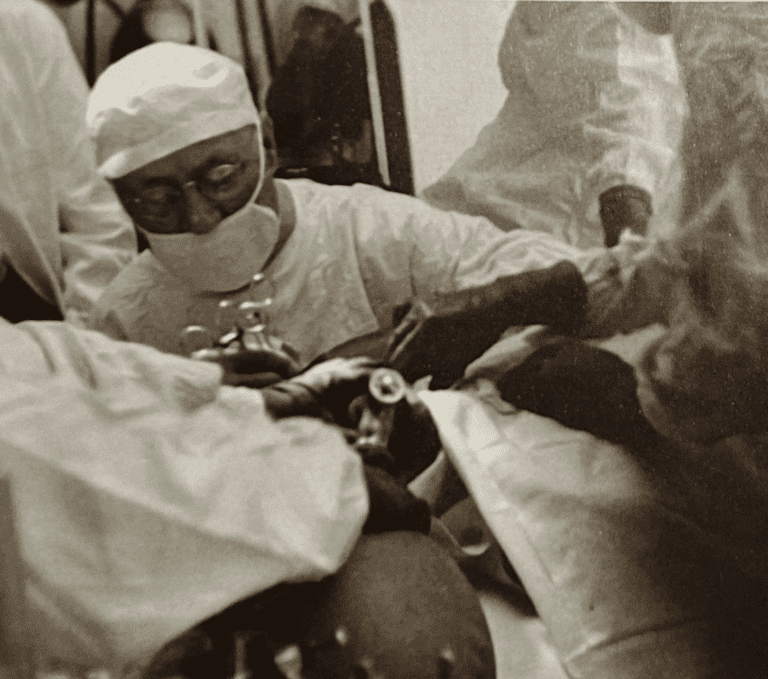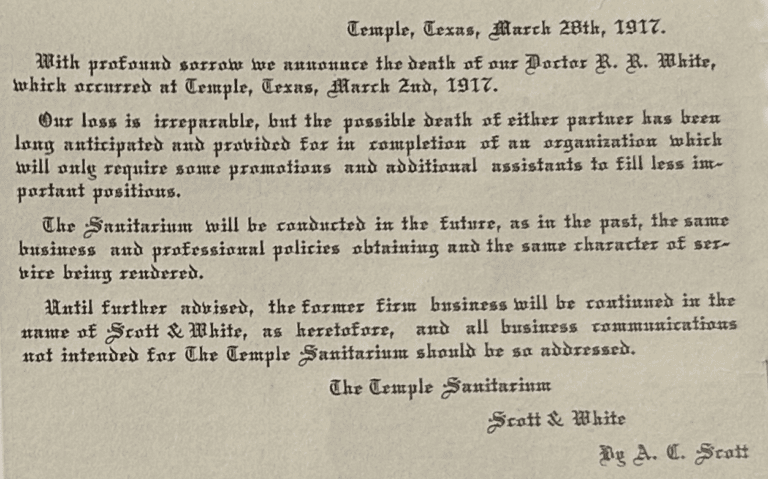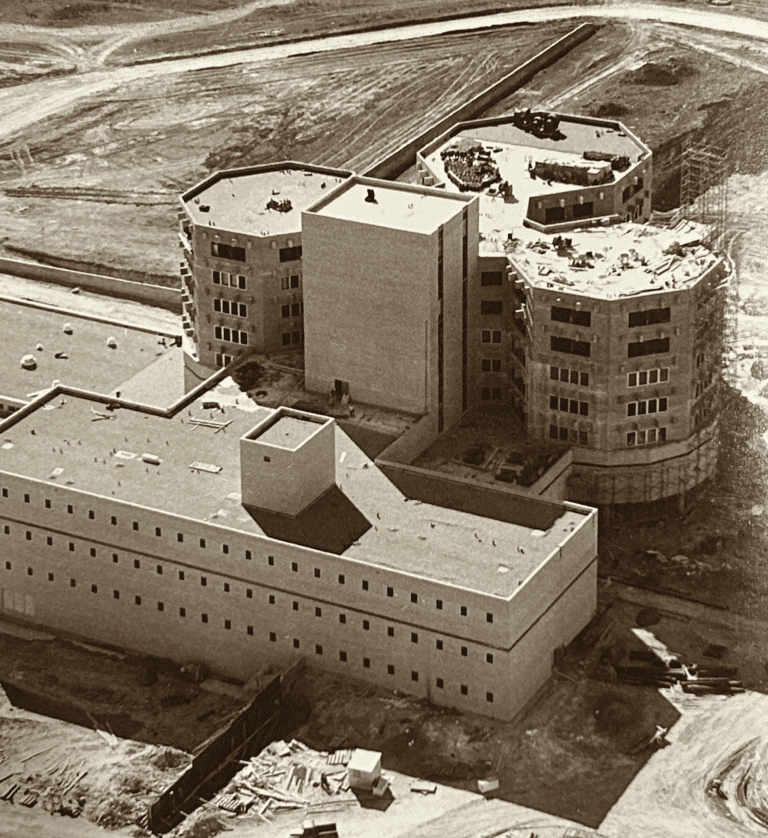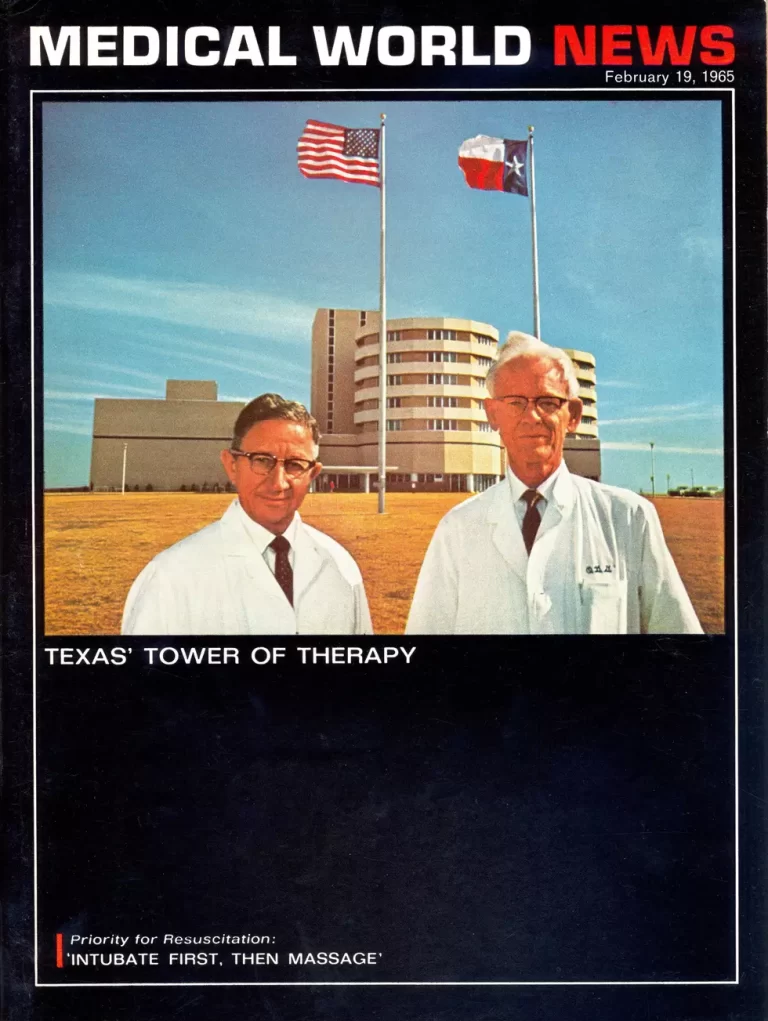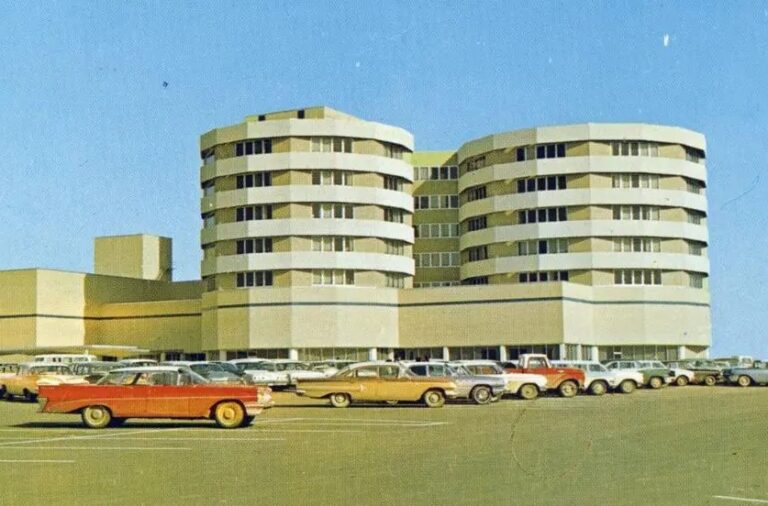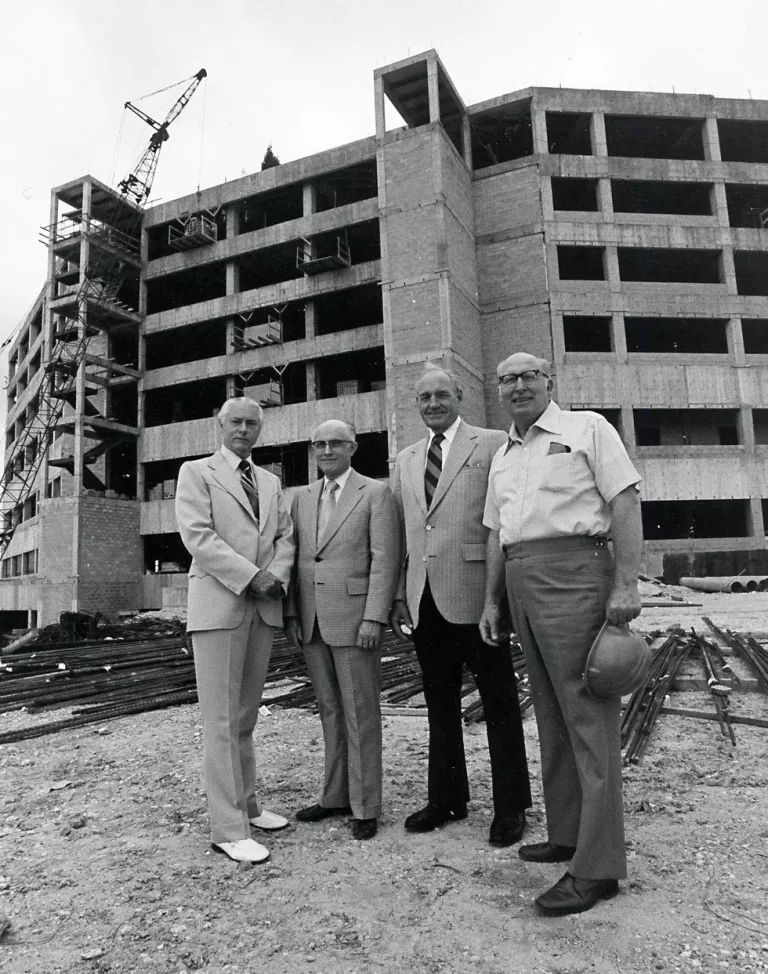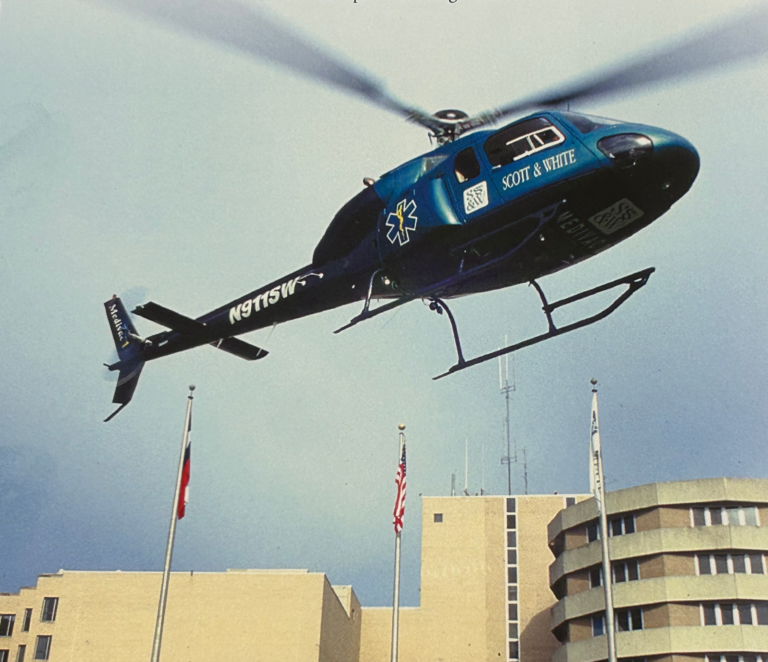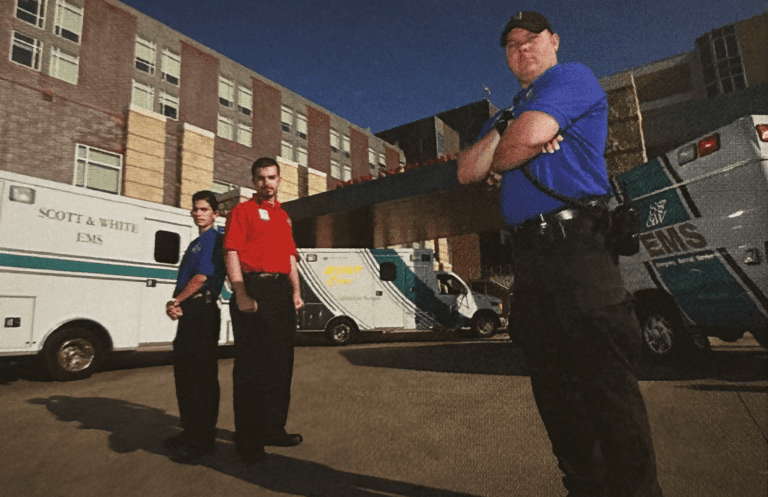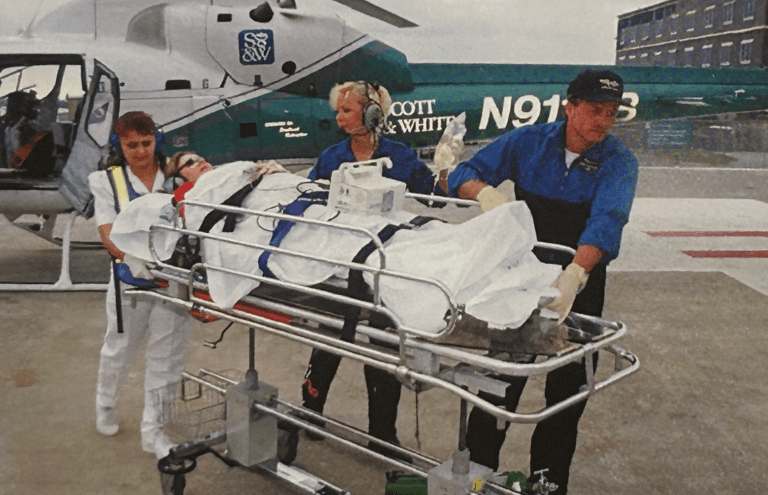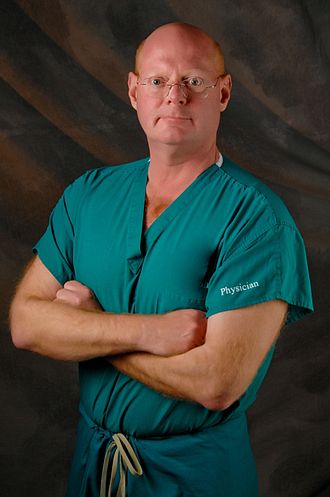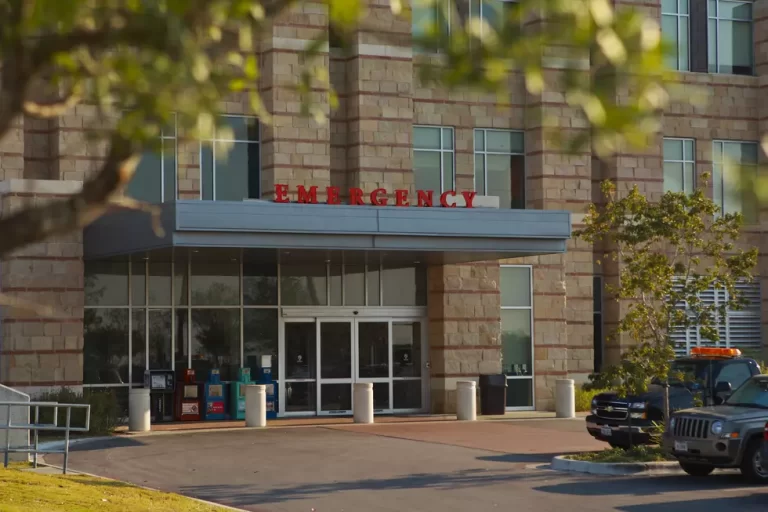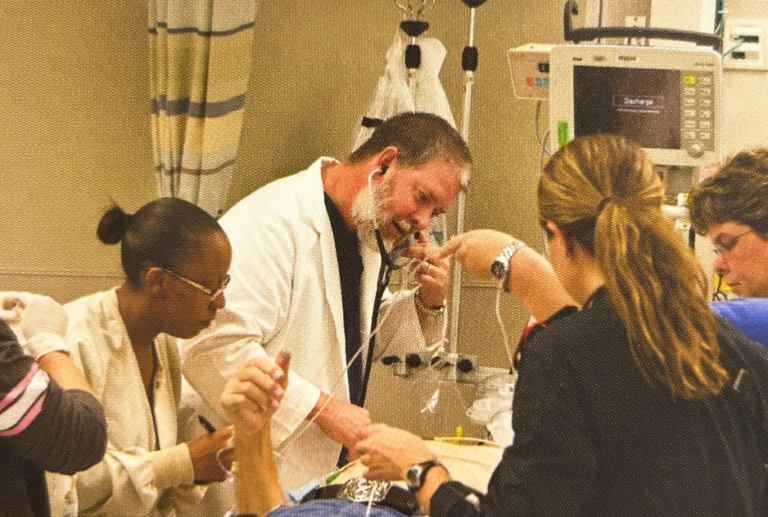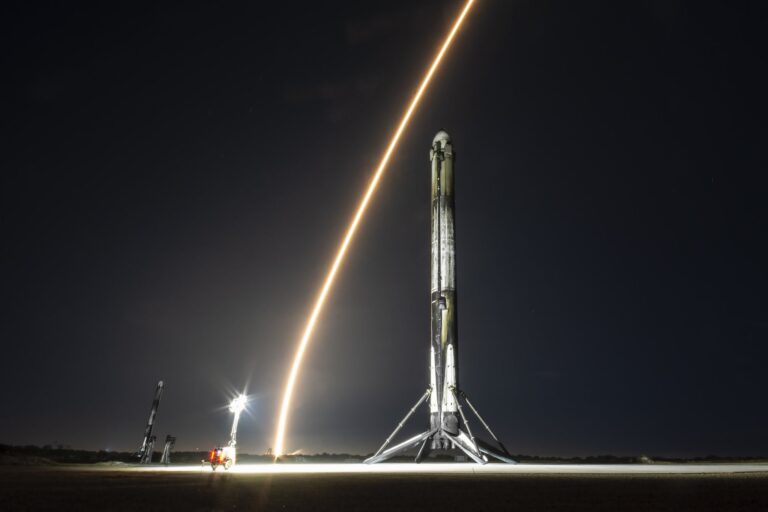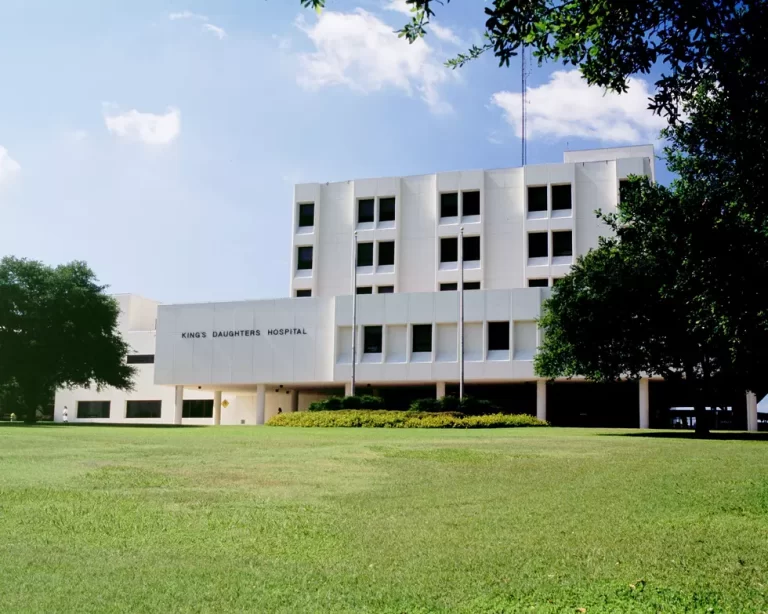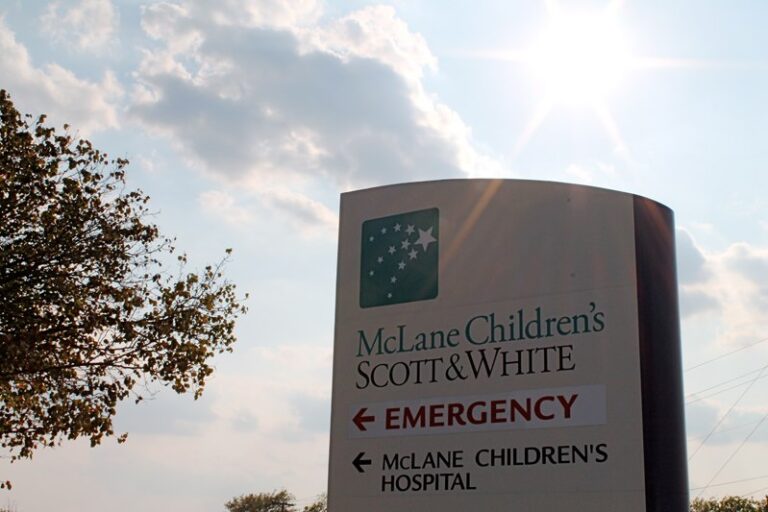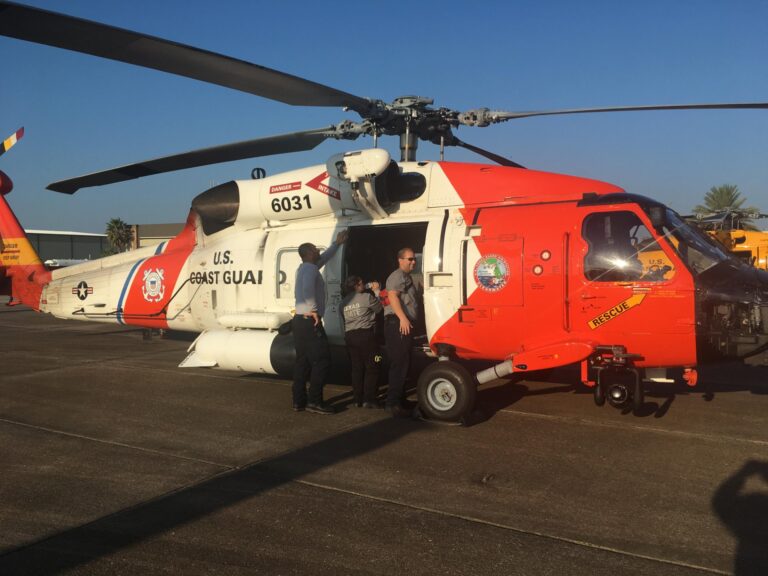A history of Medicine at Temple
-

1881 Temple, Texas, was founded
by the Gulf, Colorado, & Santa Fe Railway, a subsidiary of the Atchison, Topeka, & Santa Fe Railway. Originally called Temple Junction, the town was meant to serve as a construction camp and depot along the railway. An abundance of railroad workers purchased lots in the newly established town, named for Bernard Moore Temple (1843–1901), the civil engineer who designed the layout for the tracks through Bell County, Texas.
-

Aprox 1890 Railroad workers posing with an engine at the Santa Fe Depot in Temple, Texas.
-

1892 Santa Fe Hospital began operations. A precursor to S&W.
The first Santa Fe Hospital, built of wood, was added onto at least twice. As the sound reputation of the hospital grew under the direction of Drs. Scott and White, so did the need for more patient beds. The wooden building remained a fire hazard, however, and the hospital directors saw clearly the need for an improved, fireproof facility.
-

October 1892, Dr. Arthur C. Scott Sr. began work
in his newly appointed role as Chief Surgeon of the recently constructed Santa Fe Hospital in Temple. His first action in that role was to fire a physician known for both dishonesty and unsound medical practices. Dr. Scott said his actions that first day—emphasizing honesty and quality healthcare—provided the guiding principles throughout all the years that have followed.
Pictured Dr. Arthur Carroll Scott Sr. (1865–1940)
-

1895 Dr. White becomes the New House Surgeon.
In 1895, Santa Fe Hospital was in need of a new house surgeon. Having won his first hospital position by means of a competitive examination, Dr. Scott decided to hold a similar competition among the applicants for the job in Temple. In his memoirs, Dr. Scott said he found Dr. Raleigh R. White Jr. to have “superiority as a man of sound medical education and broad common sense.” Of all the decisions Dr. Scott ever made in his life, he believed this was one of the most important and most fortunate.
Pictured Dr. Raleigh Richardson White Jr. (1871–1917)
-

1907, the construction of a new brick Santa Fe Hospital begun
at the intersection of Avenue H and South 25th Street, on the same property as the first building, but with the front facing east instead of north. The multi-story porch on the south side of the building was later removed and the building has been added onto a number of times over the years.
-

1910, Dr. A. C. Scott Sr. performing surgery
Dr. Scott’s primary interest was performing surgery. First with his work as chief surgeon at the Santa Fe Hospital and later with the Temple Sanitarium, he focused the majority of his available time on surgical procedures.
Dr. Scott had an interest in treating and preventing cancer. In an article entitled “What the Public Should Know about Cancer.”
-
1928 Scott & White trains resident physicians.
1928 Scott & White Memorial Hospital begins training resident physicians.
-

1922 Temple Sanitarium officially renamed Scott & White Hospital.
The 1920s were a time of change in a number of ways at the hospital. With Dr. White’s death on March 2, 1917, some adjustments to the internal management of the institution, as well as a name change, took place fairly quickly. Dr. Scott circulated a death announcement for Dr. White, in which he advised that the Temple Sanitarium would continue in its mission and would from that point onwards be called Scott & White Hospital. Dr. Scott, Sherwood, and Brinkley had formed a partnership in place of the previous one between Dr. Scott and White. In 1922, the Temple Sanitarium was officially renamed Scott & White Hospital.
-
1949 Scott & White Memorial becomes non-profit
1949 Scott & White Memorial Hospital is reorganized into the non-profit Scott & White Memorial Hospital and the for-profit Scott & White Clinic. The name would change again the following year to the Scott & White Memorial Hospital and Scott, Sherwood and Brindley Foundation.
-
1950s First Dedicated Emergency Department was born.
Scott & White established one of the first formal EDs in Central Texas, moving beyond ad-hoc emergency care.
-

1961 Construction of new facility
With fundraising completed, plans were made for the new Scott & White Memorial Hospital on "The Hill." To commemorate the beginning of construction, a traditional groundbreaking ceremony was held on December 2, 1961. The "hill was once known as Killarney Heights. This remains the institution’s current location. Pictured on 1963 the "new" Scott and White hospital now known as "Brindley Circles." -

1965 S&W Makes National News.
Scott & White began to be featured in national media in the 1960s. Pictured here is "The Hill" in Medical World News.
-

1970s, The Growth of Trauma Services
As Interstate 35 expanded, trauma cases increased, prompting Scott & White to develop one of the first organized trauma response systems in Texas.
-

1978 The Mabee Center
As the city and the hospital's reach continued to grow, the hospital continued to expand.
-

1991, Scott & White 2nd in the nation approved to implement an emergency medicine residency program.
In 1991, Scott & White became the second hospital in the nation to be approved to implement an emergency medicine residency program. Scott & White Emergency Medical Services (EMS) was established in 1988 as a non-emergency medical transport provider.
-
1995 first Emergency Medicine class graduates
.
-
1992 First Emergency Medicine class started.
.
-

1995 Scott and White provides EMS transport for Temple.
Scott & White EMS contracted with the City of Temple to provide all emergency transports for Temple residents and surrounding communities.
Pictured Scott and White EMS 2007
-

1999 Scott and White Level II trauma center.
By 1999, Scott & White Memorial Hospital achieved designation as a Level II Trauma Center.
Pictured Helicopter Ambulance with patient 1999
-

2002 NASA flight surgeon for the International Space Station.
After completing his residency in Emergency Medicine Residency training in Temple Texas in 1997, Dr. Sean K. Roden obtained his Master of Public Health and completed an aerospace medicine fellowship at The University of Texas Medical Branch (UTMB), Galveston. He worked at NASA from 2002- 2022. From October 2012 to February 2013, Roden served as medical officer/expeditionary physician for the National Science Foundation South Pole Station.
-

2003, Scott & White becomes a level 1 Trauma Center.
In 2003, Scott & White becomes a level 1 Trauma Center.
-

2007 New hospital completed with greatly expanded ED
In 2003, Scott & White once again began building onto to their campus. The Center For Advanced Medicine would help upgrade the facilities from the circle towers.
-

2009 Dr. Russle Jones in the Emergency Department
-

2010??? SpaceX and BSWEM
-

2009, purchase of King's Daughter
King's Daughter Hospital was obtained by S&W in 2009, renovated and opened as a children's hospital. -

2011 McLane children’s hospital opens
McLane Children’s Hospital opens in Temple and is the only children’s hospital between Dallas-Fort Worth and Austin with a pediatric trauma center.
-
2017 Baylor merges with BS&W
The two systems merge and create a new health system, Baylor Scott & White Health, and become the largest not-for-profit healthcare system in the state of Texas.
-

2017 BSWEM deploys for hurricane Harvey
One of our residents was of the first one to deploy with the Texas EMTF program to a major disaster.
Useful Links
Contact Us
Lindsey Goodnight
GME Program Administrator II
Phone: 254.724.5815
Fax: 254.724.0408
Email: [email protected]
Cari Cummings
GME Program Administrator
Phone: 254.724.0884
Fax: 254.724.0408
Email: [email protected]
Clerkship
Hilary Martinez
Senior Coordinator – Emergency Medicine
Phone: 713.798.7964
Email: [email protected]
VISIT
- 2401 S. 31st St.
- Temple, TX 76508

